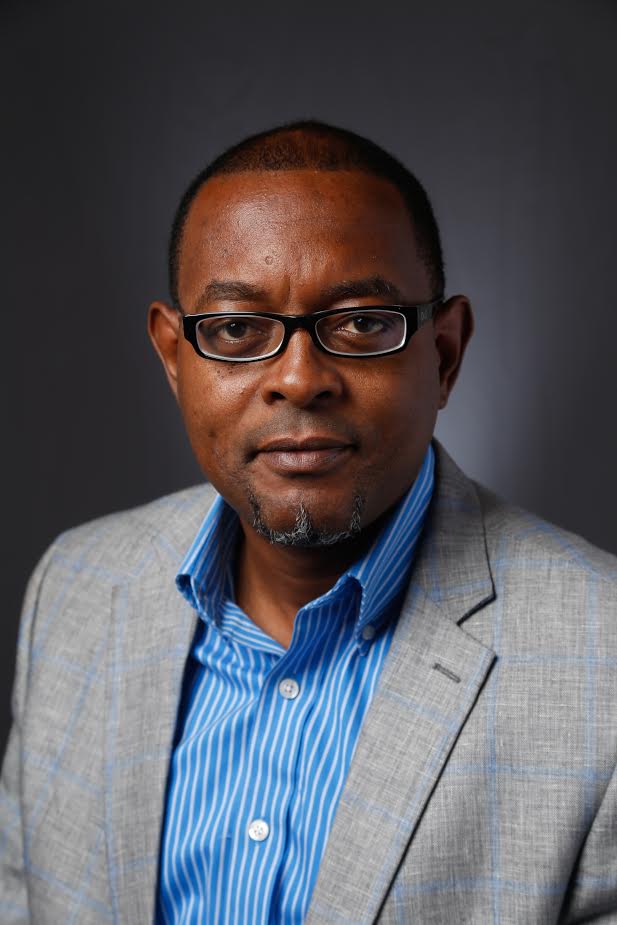John Gachago, BSBA, MS, HITPROIM, DHA serves as Principal and eHealth Consultant for JWG Global Ltd/Afridokta.com
On Saturday, September 23, Mr. Gachago will speak on a panel at Becker's Hospital Review 3rd Annual Health IT + Revenue Cycle Conference. As part of an ongoing series, Becker's is talking to healthcare leaders who plan to speak at the conference, which will take place September 21 through September 23 in Chicago.
To learn more about the conference and Mr. Gachago's session, click here.
Question: Looking at your IT budget, what is one item or expense that has surprised you in terms of ROI? How so?
John Gachago: One very surprising item for me has been the ROI on mobile health applications particularly in low and middle income countries where we do 80% of our work. In places like Kenya, Uganda and Tanzania where we see expanding access to healthcare simply by virtue of the ubiquity of mobile telephony. People in regions that once felt like access to a doctor was a privilege now enjoy access via mobile phone via our telemedicine /mHealth platform Afridokta.
Q: Finding top tech talent is always a challenge. Say a CIO called you up today to ask for an interview question that would distinguish the best candidates from the mid- to low-performers. What question do you suggest he or she ask?
JG: From experience hiring staff for several years and being Targetted Selection certified, during the process the one question I would like to see more interviewers ask the candidates is, "When was the last time you worked on a project that kept you up more than 24 hours without you realizing it and what was the project about?" This is a question that can help identify what an individual is passionate about. However what is even more so surprising is how many interviewers in healthcare do not make use of the STAR interview method which is behavioral in nature and evidence based. To me this is a clear indication of why healthcare still lags behind in its processes and speaks to the difficulty in bringing people into the healthcare system at a time when innovation is so critically needed. My pet peeve is when I hear allegedly professional HR people in healthcare ask the question, "So tell me about yourself, " ! To me that's a stick-a-fork-in-my-eye moment and smacks of mental laziness which begets poor hiring practices!
Q: We spend a lot of timing talking about the exciting innovation modernizing healthcare. It's also helpful to acknowledge what we've let go of. What is one form of technology, one process or one idea that once seemed routine to you but is now endangered, if not extinct? What existed in your organization two to five years ago but not anymore?
JG: We have let go of the idea that technology is only as good as the person using it. We seem so hyped up on the next new technology that we have neglected the investment of training people to leverage that technology effectively. Granted I love technology but only to the extent that I have human beings behind it that have enough faith in themselves to realize the technology is designed to enhance what they do - but it can never replace their unique human ingenuity. Going back to what once seemed routine is the interview/hiring experience. We now have online submissions of resumes and algorithms designed by the software that processes these resumes. This, in my opinion, negates the human intuition or gut sense that can identify great candidates. That famous "gut feeling" is being neglected more and more in the age of algorithms, action verbs and key words that identify candidates for recruitment.
Q: Tell us about the last time you were truly, wildly amazed by technology. What did you see?
JG: Most recently, at the American Telemedicine Association conference in Orlando, I was wowed by a technology that allows a patient to request translation services during a live audio/video consult . This automatically pulls in a live translator into the telemedicine consult that helps the patient describe their symptoms or primary complaint in the most effective manner for them and thereby ensuring a very accurate translation to the Physician which leads to a better diagnosis. We have recently adopted this on our Afridokta telemedicine platform that caters to low and middle income countries. A second technology that has supported our expansion is the Mpesa payment system that has enabled banking of people that previous had no bank accounts and allows for easy payment by the masses for all sorts of commodities and services including healthcare.

